Filter by
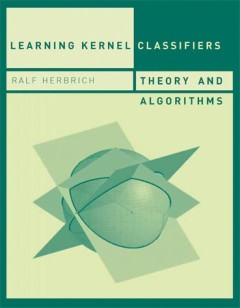
Learning Kernel Classifiers: Theory and Algorithms
Linear classifiers in kernel spaces have emerged as a major topic within the field of machine learning. The kernel technique takes the linear classifier--a limited, but well-established and comprehensively studied model--and extends its applicability to a wide range of nonlinear pattern-recognition tasks such as natural language processing, machine vision, and biological sequence analysis. This…
- Edition
- 1
- ISBN/ISSN
- 9780262256339
- Collation
- -
- Series Title
- -
- Call Number
- -
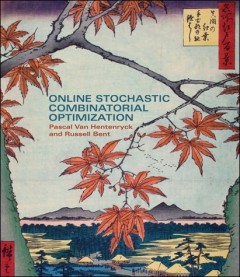
Online stochastic combinatorial optimization
"Online decision making under uncertainty and time constraints represents one of the most challenging problems for robust intelligent agents. In an increasingly dynamic, interconnected, and real-time world, intelligent systems must adapt dynamically to uncertainties, update existing plans to accommodate new requests and events, and produce high-quality decisions under severe time constraints. S…
- Edition
- -
- ISBN/ISSN
- 9780262257152
- Collation
- 1 online resource (xiii, 232 pages) :illustrations
- Series Title
- -
- Call Number
- -
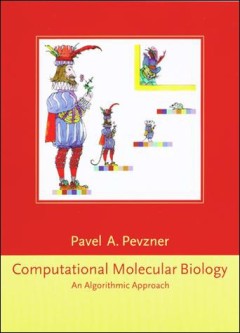
Computational Molecular Biology: An Algorithmic Approach
In one of the first major texts in the emerging field of computational molecular biology, Pavel Pevzner covers a broad range of algorithmic and combinatorial topics and shows how they are connected to molecular biology and to biotechnology. The book has a substantial "computational biology without formulas" component that presents the biological and computational ideas in a relatively simple ma…
- Edition
- -
- ISBN/ISSN
- 9780262281522
- Collation
- 1 online resource (xviii, 314 pages).
- Series Title
- -
- Call Number
- -

Parallel Algorithms for Regular Architectures :Meshes and Pyramids.
AnnotationOCLC-licensed vendor bibliographic record.
- Edition
- -
- ISBN/ISSN
- 9780262279833
- Collation
- 1 online resource (336 pages)
- Series Title
- -
- Call Number
- -
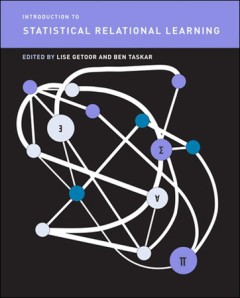
Introduction to statistical relational learning
"Index" : an online index is available on the book webpage at http://www.cs.umd.edu/srl-book/index.htm.Advanced statistical modeling and knowledge representation techniques for a newly emerging area of machine learning and probabilistic reasoning; includes introductory material, tutorials for different proposed approaches, and applications.OCLC-licensed vendor bibliographic record.
- Edition
- -
- ISBN/ISSN
- 9780262256230
- Collation
- 1 online resource (ix, 586 pages) :illustrations.
- Series Title
- -
- Call Number
- -

Advances in large margin classifiers
The concept of large margins is a unifying principle for the analysis of many different approaches to the classification of data from examples, including boosting, mathematical programming, neural networks, and support vector machines. The fact that it is the margin, or confidence level, of a classification--that is, a scale parameter--rather than a raw training error that matters has become a …
- Edition
- -
- ISBN/ISSN
- 9780262283977
- Collation
- 1 online resource (vi, 412 pages) :illustrations.
- Series Title
- -
- Call Number
- -
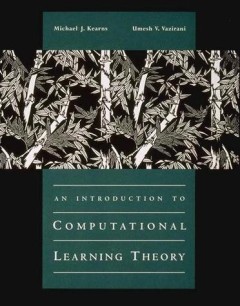
An introduction to computational learning theory
Emphasizing issues of computational efficiency, Michael Kearns and Umesh Vazirani introduce a number of central topics in computational learning theory for researchers and students in artificial intelligence, neural networks, theoretical computer science, and statistics.Computational learning theory is a new and rapidly expanding area of research that examines formal models of induction with th…
- Edition
- -
- ISBN/ISSN
- 0585350531
- Collation
- 1 online resource (xii, 207 pages) :illustrations
- Series Title
- -
- Call Number
- 005 KEA i
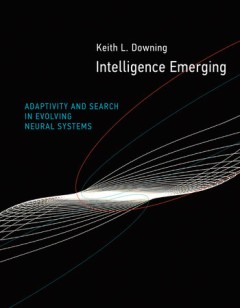
Intelligence emerging : adaptivity and search in evolving neural systems
"Emergence--the formation of global patterns from solely local interactions--is a frequent and fascinating theme in the scientific literature both popular and academic. In this book, Keith Downing undertakes a systematic investigation of the widespread (if often vague) claim that intelligence is an emergent phenomenon. Downing focuses on neural networks, both natural and artificial, and how the…
- Edition
- -
- ISBN/ISSN
- 0262328666
- Collation
- 1 online resource (xxii, 475 pages) :illustrations
- Series Title
- -
- Call Number
- -
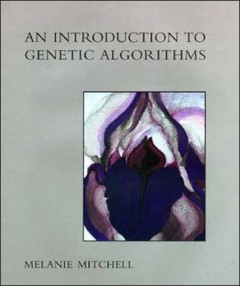
An introduction to genetic algorithms
"A Bradford book."Genetic algorithms have been used in science and engineering as adaptive algorithms for solving practical problems and as computational models of natural evolutionary systems. This brief, accessible introduction describes some of the most interesting research in the field and also enables readers to implement and experiment with genetic algorithms on their own. It focuses in d…
- Edition
- -
- ISBN/ISSN
- 9780262280013
- Collation
- 1 online resource (viii, 205 pages) :illustrations.
- Series Title
- -
- Call Number
- 510 MIT i
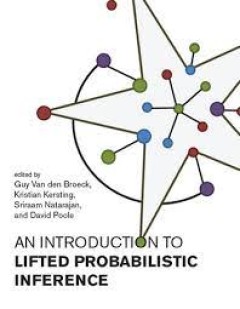
An introduction to lifted probabilistic inference
"The book presents an introduction to, and an authoritative guide, for anyone interested in the problem of probabilistic inference in the presence of symmetries/structured models"--OCLC-licensed vendor bibliographic record.
- Edition
- -
- ISBN/ISSN
- 0262365596
- Collation
- 1 online resource.
- Series Title
- -
- Call Number
- -
 Computer Science, Information & General Works
Computer Science, Information & General Works  Philosophy & Psychology
Philosophy & Psychology  Religion
Religion  Social Sciences
Social Sciences  Language
Language  Pure Science
Pure Science  Applied Sciences
Applied Sciences  Art & Recreation
Art & Recreation  Literature
Literature  History & Geography
History & Geography